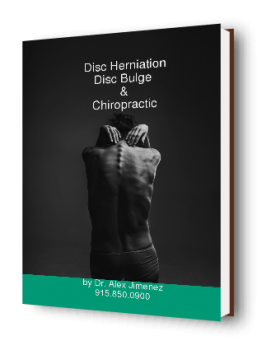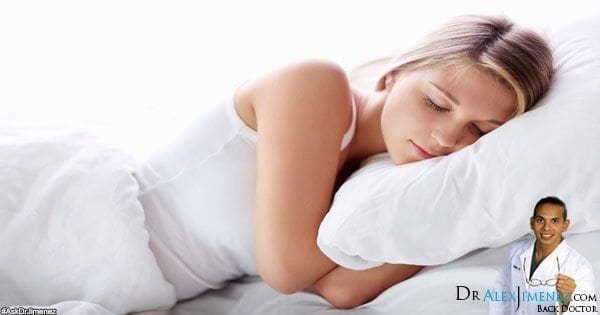
For individuals suffering from back pain, getting a good night’s rest can often be a challenge. However, some people report feeling relief from the strain on their aching backs after sleeping in specific positions. Often misunderstood, it’s strongly believed that certain forms of back pain can be associated with sleep complications, including an improper sleeping posture.
Table of Contents
The Relation of Sleep and Back Pain
“There is not a lot of science behind sleep as a major cause of back pain,” stated Santhosh Thomas, DO, a spine specialist with the Cleveland Clinic and associate medical director of the Richard E. Jacobs Medical Center in Avon, Ohio. However, experts do claim that individuals with sleep problems experience more complications regarding back pain. “Sleep deprivation is known to affect mood and functional ability as well as negatively impact perception of pain,” Dr. Thomas quoted. According to the National Sleep Foundation, pain in turn can affect the quality of an individual’s sleep, leading to a lighter sleep state and more frequent waking throughout the night.
A study published in the Asian Spine Journal in 2014 involving more than 3,100 people found that more than 32 percent of those individuals with low back pain suffered from sleep disturbances due to their back pain symptoms, waking a minimum of two times during the night. Additionally, improper sleeping posture can place increased pressure on the neck, shoulders, hips, lower back, knees and even the heels, all which can result in pain. There’s not a specific sleep position that can ultimately eliminate back pain for everyone, but a few methods can help manage the symptoms to help individuals sleep more soundly throughout the night.
Sleeping on your stomach is one of the most common sleep position which can aggravate back pain. “Typically, sleeping on your stomach can flatten the natural curve of the spine, putting some additional strain on your back muscles,” Santhosh Thomas said. “Plus, stomach sleeping means that your neck is rotated, which can actually result in back pain between the shoulders,” added Paul Grous, MSPT, a physical therapist and spine specialist with Good Sheppard Penn Partners in greater Philadelphia.
Other Factors for Back Pain
While several sleep positions can create back complications, the source of many individuals’ back pain and symptoms is frequently caused by their daily activities or a lack of it. It is believed that the biggest factor contributing to the development of back complications among the general population is the amount of time people spend sitting during their waking hours in an improper posture. Sitting for extended periods of time behind a desk in a slouched posture with a rounded back can strain as well as increase the pressure on the structures surrounding the spine. During daylight hours, its essential to stand, walk, or stretch as often as possible and practice good posture when standing and sitting to help ease back pain at night.
How to Correct Posture
Furthermore, several simple modifications to an individual’s regular sleep position can help reduce the pressure on their back. For those who sleep on their back, you can place a pillow under your knees to allow the spine to maintain its natural curve. For those who sleep on their stomach, place a pillow under the lower abdomen and pelvis to ease back strain. And last but not least, for those individuals who sleep on their sides, draw your legs up slightly towards your chest and sleep with a pillow, preferably a full body pillow, between your knees.
Also, a selected mattress and pillow according to each person’s individual preference in comfort can help improve back pain symptoms. Some people prefer the firmness of a harder mattress while others are more comfortable on a softer mattress. In the same way, some people may find it helpful to use a contoured pillow to help improve neck pain symptoms or sleeping on a single pillow as compared to multiple pillows can alleviate neck strain. Whatever your preference and comfort, its essential for every individual experiencing some form of back pain to find the best suitable sleep position, mattress, and pillow for them to relieve or even eliminate their back pain.
If after a few changes to your sleep regimen, the symptoms of back pain don’t improve, make sure you seek immediate medical attention to properly diagnose any possible injuries or underlying conditions that could be the source of your pain, discomfort, and sleep problems.
Sourced through Scoop.it from: www.elpasochiropractorblog.com
For individuals suffering from back pain, getting a good night’s rest can often be a challenge. However, some people report feeling relief from the strain on their aching backs after sleeping in specific positions. Often misunderstood, it’s strongly believed that certain forms of back pain can be associated with sleep complications, including an improper sleeping posture. For more information, please feel free to ask Dr. Jimenez or contact us at (915) 850-0900.
By Dr. Alex Jimenez
Post Disclaimer
Professional Scope of Practice *
The information on this blog site is not intended to replace a one-on-one relationship with a qualified healthcare professional or licensed physician and is not medical advice. We encourage you to make healthcare decisions based on your research and partnership with a qualified healthcare professional.
Blog Information & Scope Discussions
Welcome to El Paso's Premier Wellness and Injury Care Clinic & Wellness Blog, where Dr. Alex Jimenez, DC, FNP-C, a board-certified Family Practice Nurse Practitioner (FNP-BC) and Chiropractor (DC), presents insights on how our team is dedicated to holistic healing and personalized care. Our practice aligns with evidence-based treatment protocols inspired by integrative medicine principles, similar to those found on this site and our family practice-based chiromed.com site, focusing on restoring health naturally for patients of all ages.
Our areas of chiropractic practice include Wellness & Nutrition, Chronic Pain, Personal Injury, Auto Accident Care, Work Injuries, Back Injury, Low Back Pain, Neck Pain, Migraine Headaches, Sports Injuries, Severe Sciatica, Scoliosis, Complex Herniated Discs, Fibromyalgia, Chronic Pain, Complex Injuries, Stress Management, Functional Medicine Treatments, and in-scope care protocols.
Our information scope is limited to chiropractic, musculoskeletal, physical medicine, wellness, contributing etiological viscerosomatic disturbances within clinical presentations, associated somato-visceral reflex clinical dynamics, subluxation complexes, sensitive health issues, and functional medicine articles, topics, and discussions.
We provide and present clinical collaboration with specialists from various disciplines. Each specialist is governed by their professional scope of practice and their jurisdiction of licensure. We use functional health & wellness protocols to treat and support care for the injuries or disorders of the musculoskeletal system.
Our videos, posts, topics, subjects, and insights cover clinical matters and issues that relate to and directly or indirectly support our clinical scope of practice.*
Our office has made a reasonable effort to provide supportive citations and has identified relevant research studies that support our posts. We provide copies of supporting research studies available to regulatory boards and the public upon request.
We understand that we cover matters that require an additional explanation of how they may assist in a particular care plan or treatment protocol; therefore, to discuss the subject matter above further, please feel free to ask Dr. Alex Jimenez, DC, APRN, FNP-BC, or contact us at 915-850-0900.
We are here to help you and your family.
Blessings
Dr. Alex Jimenez DC, MSACP, APRN, FNP-BC*, CCST, IFMCP, CFMP, ATN
email: coach@elpasofunctionalmedicine.com
Licensed as a Doctor of Chiropractic (DC) in Texas & New Mexico*
Texas DC License # TX5807
New Mexico DC License # NM-DC2182
Licensed as a Registered Nurse (RN*) in Texas & Multistate
Texas RN License # 1191402
ANCC FNP-BC: Board Certified Nurse Practitioner*
Compact Status: Multi-State License: Authorized to Practice in 40 States*
Graduate with Honors: ICHS: MSN-FNP (Family Nurse Practitioner Program)
Degree Granted. Master's in Family Practice MSN Diploma (Cum Laude)
Dr. Alex Jimenez, DC, APRN, FNP-BC*, CFMP, IFMCP, ATN, CCST
My Digital Business Card


